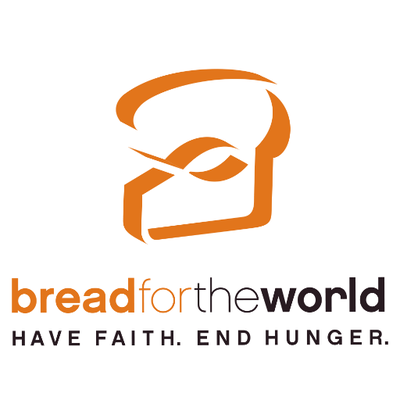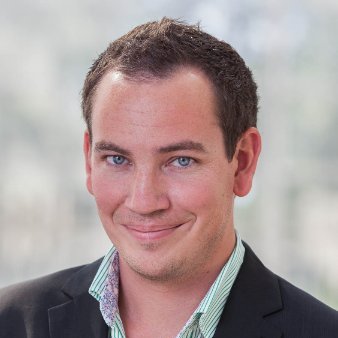poverty
See the following -
Ending Poverty: There's an Open Source App for That!
 Rural Africa presents changemakers with intractable challenges across sectors, but one American investor, Grameen Foundation, believes it all comes down to access to information. Grameen Foundation has invested millions to develop mobile-phone applications that leapfrog over a lack of electricity, education, and income. Building on their legacy of leading-edge ideas, Grameen Foundation has evolved from funding microfinance to designing disruptive solutions to the kind of poverty that's most challenging to reach, in remote rural areas, and to the poorest of the poor. Since more people have access to cell phones than toilets in Africa, Grameen Foundation brings increased agricultural productivity, access to prenatal and infant healthcare, and a portfolio of financial services, to the poor--right into the palm of their hands.
Rural Africa presents changemakers with intractable challenges across sectors, but one American investor, Grameen Foundation, believes it all comes down to access to information. Grameen Foundation has invested millions to develop mobile-phone applications that leapfrog over a lack of electricity, education, and income. Building on their legacy of leading-edge ideas, Grameen Foundation has evolved from funding microfinance to designing disruptive solutions to the kind of poverty that's most challenging to reach, in remote rural areas, and to the poorest of the poor. Since more people have access to cell phones than toilets in Africa, Grameen Foundation brings increased agricultural productivity, access to prenatal and infant healthcare, and a portfolio of financial services, to the poor--right into the palm of their hands.
Frontline SMS Helps Rural Farmers In Uganda Increase Crop Yields and Fight Disease Outbreaks
Congratulations to Jimmie Ssena for being recognized as a finalist of the VNI Service Awards for his work with rural farmers using FrontlineSMS! Read More »
- Login to post comments
Gates Foundation Spends Bulk Of Agriculture Grants In Rich Countries
Most of the $3bn (£1.8bn) that the Bill & Melinda Gates Foundation has given to benefit hungry people in the world’s poorest countries has been spent in the US, Britain and other rich countries, with only around 10% spent in Africa, new research suggests...
- Login to post comments
Gender Inequality Worsens Hunger and Poverty
 A new analysis by Bread for the World Institute shows that gender inequality plays a significant role in hunger and poverty, both in the U.S. and globally. The Institute analyzes the obstacles women face in trying to feed their families and pull themselves out of poverty. In the United States, the median annual pay of full-time, year-round female workers is more than $10,000 less than the pay of male workers. Working single mothers are twice as likely as men to hold low-wage and/or part-time jobs with few or no benefits. Working mothers with children under 18 report that the gender pay gap contributes to poor living conditions, poor nutrition, and fewer opportunities for their children...
A new analysis by Bread for the World Institute shows that gender inequality plays a significant role in hunger and poverty, both in the U.S. and globally. The Institute analyzes the obstacles women face in trying to feed their families and pull themselves out of poverty. In the United States, the median annual pay of full-time, year-round female workers is more than $10,000 less than the pay of male workers. Working single mothers are twice as likely as men to hold low-wage and/or part-time jobs with few or no benefits. Working mothers with children under 18 report that the gender pay gap contributes to poor living conditions, poor nutrition, and fewer opportunities for their children...
- Login to post comments
Hackathons Bring Open Source Innovation to Humanitarian Aid
 In open source software, end users, decision makers, subject matter experts, and developers from around the world can work together to create great solutions. There are a lot of mature open source projects out there already in the field of humanitarian and development aid, for example: Ushahidi and Sahana in crisis management and information gathering, OpenMRS for medical records, Martus for secure information sharing in places with limited freedom of speech, and Mifos X, an open platform for financial inclusion for people in poor areas where financial services such as savings, payments, and loans are not offered...
In open source software, end users, decision makers, subject matter experts, and developers from around the world can work together to create great solutions. There are a lot of mature open source projects out there already in the field of humanitarian and development aid, for example: Ushahidi and Sahana in crisis management and information gathering, OpenMRS for medical records, Martus for secure information sharing in places with limited freedom of speech, and Mifos X, an open platform for financial inclusion for people in poor areas where financial services such as savings, payments, and loans are not offered...
- Login to post comments
Homelessness, Hunger, The Immiseration Of The Unemployed, Decimated Head Start Programs And Public Schools: All Brought To You, Courtesy Of The Sequester
The federal budget sequester — that Rosemary’s baby that resulted from the unholy alliance between political elites’ bipartisan fetish on the one hand, and their austerity mania on the other — continues to wreak havoc in the lives of millions of Americans. Like a particularly nasty and tenacious social disease, it is the gift that keeps on giving. Read More »
- Login to post comments
How Praekelt.org and Open Source Provide Critical Services to Enable Social Change
 In Eastern and Southern Africa, women are still dying unnecessarily during the basic, natural act of giving life. According to Unicef, “In 2010, close to 58,000 women lost their lives during pregnancy and childbirth, accounting for more than one fifth of all such deaths in the world.” Gustav Praekelt, founder of the South African design and development firm Praekelt.com, was deeply affected by the high maternal mortality rate in his country and realized in 2007 that open source software and mobile phones could help provide critical information and services to combat poverty and maternal mortality rates -- among other social issues -- across the continent and potentially around the world.
In Eastern and Southern Africa, women are still dying unnecessarily during the basic, natural act of giving life. According to Unicef, “In 2010, close to 58,000 women lost their lives during pregnancy and childbirth, accounting for more than one fifth of all such deaths in the world.” Gustav Praekelt, founder of the South African design and development firm Praekelt.com, was deeply affected by the high maternal mortality rate in his country and realized in 2007 that open source software and mobile phones could help provide critical information and services to combat poverty and maternal mortality rates -- among other social issues -- across the continent and potentially around the world.
- Login to post comments
How Technology Democratised Development
Over the coming weeks, A Matter of Life and Tech will feature a range of voices from people helping to build Africa’s tech future. This week, mobile innovator Ken Banks argues that technology has become a vital tool in the fight against poverty. Read More »
- Login to post comments
How The World Bank Is Using Technology And Open Development To Help Eradicate Poverty
Founded in 1944, the World Bank is, as its name alludes to, a global financial institution geared towards reducing poverty in developing countries. Read More »
- Login to post comments
India Is Quite Capable Of Sending A Rocket To Mars And Fighting Poverty At The Same Time
This morning, India successfully launched a rocket to Mars. Christened Mangalyaan, or Mars vehicle, the rocket is part of a scientific mission that cost a grand total of Rs 4.5 billion, or $73 million. In terms of the space business, that’s a bargain. By contrast, NASA’s next Mars mission will cost $671 million and do the same thing as India’s craft: orbit the red planet collecting data. Read More »
- Login to post comments
IRIN Examines Whether Poverty Reduction Schemes Can Help Lower TB Rate in Developing Countries
IRIN examines "whether a new generation of social protection schemes, aimed at reducing poverty and often using cash transfers to the poorest, can be harnessed to bring down the rate of [tuberculosis (TB)] in developing countries." Read More »
- Login to post comments
Konektaz Open Development & Open Data
On April 15, 2013 the United Nations marked the 1000 day mark to the 2015 target date for the Millennium Development Goals. The eight goals are [as follows]... Read More »
- Login to post comments
Lancet/Oslo Commission: The Political Origins Of Health Inequity
Despite large gains in health over the past few decades, the distribution of health risks worldwide remains extremely and unacceptably uneven. Although the health sector has a crucial role in addressing health inequalities, its efforts often come into conflict with powerful global actors in pursuit of other interests such as protection of national security, safeguarding of sovereignty, or economic goals. Read More »
- Login to post comments
Let's Do Public Health Better
 Eric Reinhart, who describes himself as “a political anthropologist, psychoanalyst, and physician,” has had a busy month. He started with an essay in the New England Journal of Medicine (NEJM) about “reconstructive justice,” then an op-ed in The New York Times on how our health care system is demoralizing the physicians who work in it, and then the two that caught my attention: companion pieces in The Nation and Stat News about reforming our public health “system” from a physician-driven one to a true community health one. He's preaching to my choir. I wrote almost five years ago: “We need to stop viewing public health as a boring, not glamorous, small part of our healthcare system, but, rather, as the bedrock of it, and of our health.” Dr. Reinhart pulls no punches about our public health system(s), or the people who lead them...
Eric Reinhart, who describes himself as “a political anthropologist, psychoanalyst, and physician,” has had a busy month. He started with an essay in the New England Journal of Medicine (NEJM) about “reconstructive justice,” then an op-ed in The New York Times on how our health care system is demoralizing the physicians who work in it, and then the two that caught my attention: companion pieces in The Nation and Stat News about reforming our public health “system” from a physician-driven one to a true community health one. He's preaching to my choir. I wrote almost five years ago: “We need to stop viewing public health as a boring, not glamorous, small part of our healthcare system, but, rather, as the bedrock of it, and of our health.” Dr. Reinhart pulls no punches about our public health system(s), or the people who lead them...
- Login to post comments
McDonald's McResource Problem: Even Good Advice Can't Make Up For Low Wages
Yesterday McDonald’s (MCD) closed its McResource website, a well-meaning effort that had become a font of bad press for the fast food chain. The site suffered for two opposite but equally embarrassing problems. Some of its advice [...] clearly did not apply to McDonald’s workers. But some addressed the potential desperation of low-wage employees. [...] Read More »
- Login to post comments